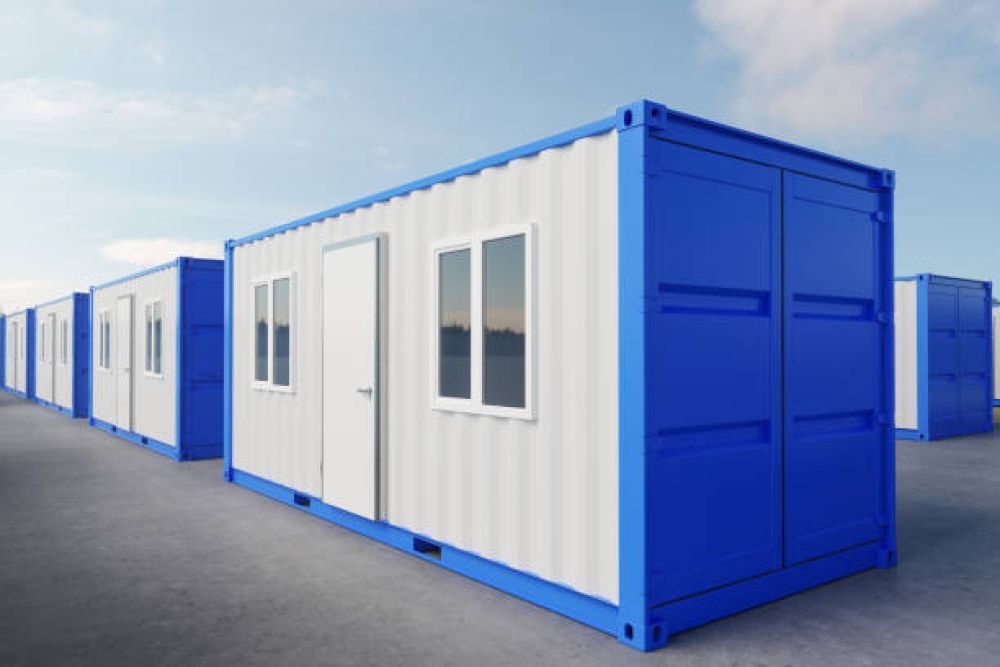
-
by House explorer
Comments
The Rise of Modular Homes: Affordable and Customizable Housing in Nigeria
In Lagos, modern **modular homes** are swiftly constructed, offering tailored designs at affordable prices in Nigeria’s dynamic **real estate** market. These innovative homes are gaining traction in 2025, providing customizable and cost-effective housing solutions that appeal to buyers. This blog examines why **modular homes** are booming and how they’re reshaping living in Nigeria. Join us to explore this transformative trend redefining the nation’s vibrant housing landscape!
What Are Modular Homes?
Modular homes are prefabricated houses built in factory sections, then assembled on-site, offering speed and quality. Unlike traditional builds, they’re crafted in controlled settings, ensuring precision. In Nigeria, they range from compact studios to spacious family homes. They blend affordability with modern design for 2025 buyers.
Why Modular Homes Are Booming
Nigeria’s housing shortage of 20 million units drives demand for fast, cost-effective solutions like modular homes. Urban growth in cities like Abuja fuels their rise, as buyers seek affordable options. In 2025, their quick construction and flexibility make them a real estate star. They’re a practical answer to Nigeria’s housing needs.
Speedy Construction Times
Modular homes are built in weeks, not months, thanks to factory assembly, a game-changer in Nigeria’s slow construction scene. A home in Port Harcourt can be ready in 4-8 weeks in 2025. Faster builds mean quicker move-ins. This speed suits Nigeria’s fast-paced urban life.
Customisation at Its Core
Modular homes offer endless design options, from open-plan layouts to vibrant finishes, tailored to Nigerian tastes. Buyers can choose features like solar panels or Igbo-inspired decor. In 2025, this flexibility excites creative homebuyers. Your home reflects your unique style effortlessly.
Eco-Friendly Building
Modular homes use less material and energy, making them greener than traditional builds in Nigeria, cutting waste by 20%. Factories recycle scraps, and homes often include energy-saving features like LED lights. In 2025, eco-conscious buyers love this. Sustainability boosts modular homes’ appeal in real estate.
Nigeria’s Real Estate Landscape
Nigeria’s real estate in 2025 craves innovative solutions, with modular homes filling gaps in cities like Enugu. Developers target young professionals and families needing affordable homes. Modular homes fit Nigeria’s cultural love for community spaces. They’re reshaping how Nigerians live and build.
Durability and Quality
Modular homes are built to last, meeting strict factory standards, rivaling traditional homes in Nigeria. In 2025, they withstand humid climates with proper materials like treated steel. Buyers trust their strength in areas like Owerri. Quality ensures long-term value for homeowners.
Cost Savings That Shine
Modular homes cost 20-30% less than traditional builds, with a Lagos two-bedroom at ₦15-25 million. Factory production cuts labour and waste, passing savings to buyers. In 2025, this affordability draws first-time homebuyers. Modular homes make homeownership more achievable in Nigeria.
Financing Modular Homes
Nigeria’s banks offer mortgages for modular homes at 15-20% interest, similar to traditional homes. Some developers provide payment plans, easing access in 2025. A ₦20 million home in Ibadan becomes affordable with financing. Smart funding opens doors to modular living.
Ideal for Urban and Rural Areas
It suits Nigeria’s diverse needs, from compact Lagos flats to spacious Kano compounds. Their transportable design reaches rural areas with ease in 2025. They adapt to local cultures, like Hausa courtyards. Versatility makes them a nationwide hit.
Challenges to Watch
Modular homes face hurdles like limited local factories or buyer misconceptions about quality in Nigeria. Shipping modules can raise costs in remote areas in 2025. Education and more suppliers are needed. Awareness will drive wider adoption in real estate.
Land and Zoning Considerations
Buying land in Nigeria for modular homes requires clear titles, like a Certificate of Occupancy, to avoid disputes. Zoning laws in cities like Calabar may restrict modular builds in 2025. Check local rules before starting. Legal clarity ensures a smooth process.
Cultural Resonance in Nigeria
It align with Nigeria’s communal values, offering shared spaces for family events. Designs can include Yoruba-inspired verandas, delighting buyers in 2025. They feel modern yet rooted in tradition. This blend fuels their real estate popularity.
Investment Potential
These homes offer strong returns in Nigeria, with resale values rising 5-8% post-customisation. In 2025, investors in secondary cities like Uyo see high demand. Their affordability attracts renters too. They’re a smart bet for real estate wealth.
Maintenance Made Simple
Modular homes require less upkeep than traditional builds, with factory-sealed materials resisting wear in Nigeria’s climate. In 2025, low-cost repairs in Jos save owners money. Simple upkeep appeals to busy homeowners. This practicality boosts their charm.
Tech Integration in Designs
They embrace smart tech, like automated lights or Wi-Fi hubs, enhancing Nigeria’s urban lifestyles. In 2025, tech-savvy buyers in Lekki love these features. Tech adds convenience and value. It’s a modern edge for modular living.
Community Building with Modular
Modular homes can form clusters, creating affordable estates in Nigeria’s suburbs, like in Abeokuta. Shared amenities foster neighbourly bonds in 2025. These setups echo Nigeria’s village spirit. They build communities alongside homes.
Future of Modular Homes
In 2025, modular homes will soar in Nigeria’s real estate with greener designs and AI-driven construction. More factories will lower costs, reaching rural areas like Kaduna. They’re a bold vision for affordable housing. Modular homes are here to stay.
Tips for Buyers
Curious about modular homes? Research local suppliers, visit showrooms, and confirm land zoning in Nigeria. Start with a modest design to test the waters in 2025. Work with experts for a seamless build. Your dream home is within reach.
Conclusion
The rise of modular homes in Nigeria’s 2025 real estate market offers affordable, customizable housing that’s fast and green. These homes blend style, savings, and sustainability, captivating buyers nationwide. Ready to build your future? Visit House Explorer for listings and tips to start your modular home adventure!
Posted 5 months ago
Add a comment